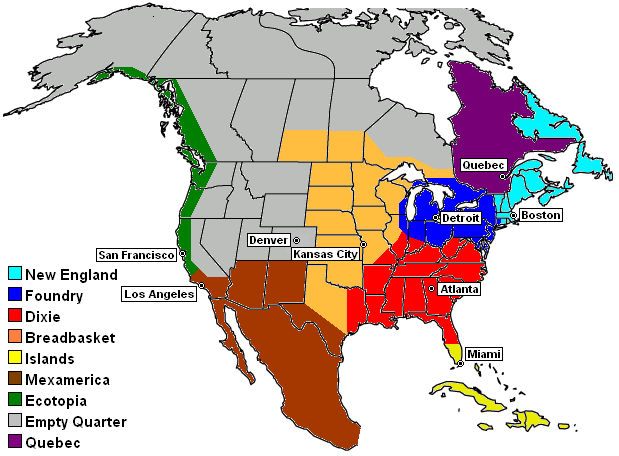The Star still can't figure out what the oilsands are called. Yet another editorial complaining about how poor old Ontario will have to shoulder the burden of greenhouse gas reductions that they're also simultaneously hoping become more onerous. Charming.
Canada's a joke at climate talks
You know you're in trouble when they're laughing at you.
For Canadians who take their country seriously, and who believe global warming is a deadly serious business, it's almost painful to see their environmental policies singled out for global ridicule. But after ignoring the critics and playing an obstructionist role in climate negotiations culminating this week in Copenhagen, the federal government has made itself a laughably easy target.
A series of embarrassing spoofs – complete with convincing press releases that pledged Ottawa would double its targets for curbing carbon – have cast Canada as the villain in a theatre of the absurd. But the publicity stunts were not the cause of Canada's woes, merely a symptom. The inaction of the governing Conservatives has provided ample material for mockery in the run-up to the Copenhagen summit.
By sticking to his script and saying as little as possible about his environmental plans beyond pledging to ape the Americans, Prime Minister Stephen Harper has abdicated the field to the other players. Sensing an absence of leadership, premiers and mayors have moved into the vacuum to proclaim their own often rival policies – a uniquely Canadian spectacle of governments working at cross-purposes.
This cacophony is no mere sideshow. Documents leaked to the CBC appear to bear out what Ontario and Quebec have long suspected – that Harper's Alberta-focused government is planning to give the tar sands special concessions in any targets to reduce greenhouse gas emissions, while other industrial sectors will have to bear the burden of more onerous reductions.
Federal Environment Minister Jim Prentice confirmed yesterday he is contemplating special treatment for tar sands exports by designating it a "trade-sensitive" industry. That is sure to raise hackles not only across Canada but also in the U.S., where the tar sands are increasingly seen as "dirty oil."
As Harper and more than 100 other world leaders arrive in Copenhagen for a final round of bargaining, Canada's do-nothing approach amounts to playing with fire. It is making us into a laughingstock, while turning us into even more of a target – not just for pranksters, but for our negotiating partners in Copenhagen, and possibly our trading partners in the U.S.
You know you're in trouble when they're laughing at you.
For Canadians who take their country seriously, and who believe global warming is a deadly serious business, it's almost painful to see their environmental policies singled out for global ridicule. But after ignoring the critics and playing an obstructionist role in climate negotiations culminating this week in Copenhagen, the federal government has made itself a laughably easy target.
A series of embarrassing spoofs – complete with convincing press releases that pledged Ottawa would double its targets for curbing carbon – have cast Canada as the villain in a theatre of the absurd. But the publicity stunts were not the cause of Canada's woes, merely a symptom. The inaction of the governing Conservatives has provided ample material for mockery in the run-up to the Copenhagen summit.
By sticking to his script and saying as little as possible about his environmental plans beyond pledging to ape the Americans, Prime Minister Stephen Harper has abdicated the field to the other players. Sensing an absence of leadership, premiers and mayors have moved into the vacuum to proclaim their own often rival policies – a uniquely Canadian spectacle of governments working at cross-purposes.
This cacophony is no mere sideshow. Documents leaked to the CBC appear to bear out what Ontario and Quebec have long suspected – that Harper's Alberta-focused government is planning to give the tar sands special concessions in any targets to reduce greenhouse gas emissions, while other industrial sectors will have to bear the burden of more onerous reductions.
Federal Environment Minister Jim Prentice confirmed yesterday he is contemplating special treatment for tar sands exports by designating it a "trade-sensitive" industry. That is sure to raise hackles not only across Canada but also in the U.S., where the tar sands are increasingly seen as "dirty oil."
As Harper and more than 100 other world leaders arrive in Copenhagen for a final round of bargaining, Canada's do-nothing approach amounts to playing with fire. It is making us into a laughingstock, while turning us into even more of a target – not just for pranksters, but for our negotiating partners in Copenhagen, and possibly our trading partners in the U.S.

 -- be more like Mayor Miller...someone who is ridiculously unpopular even in left-wing Toronto...someone so bad he has no hope of re-election and won't run again?
-- be more like Mayor Miller...someone who is ridiculously unpopular even in left-wing Toronto...someone so bad he has no hope of re-election and won't run again?




Comment